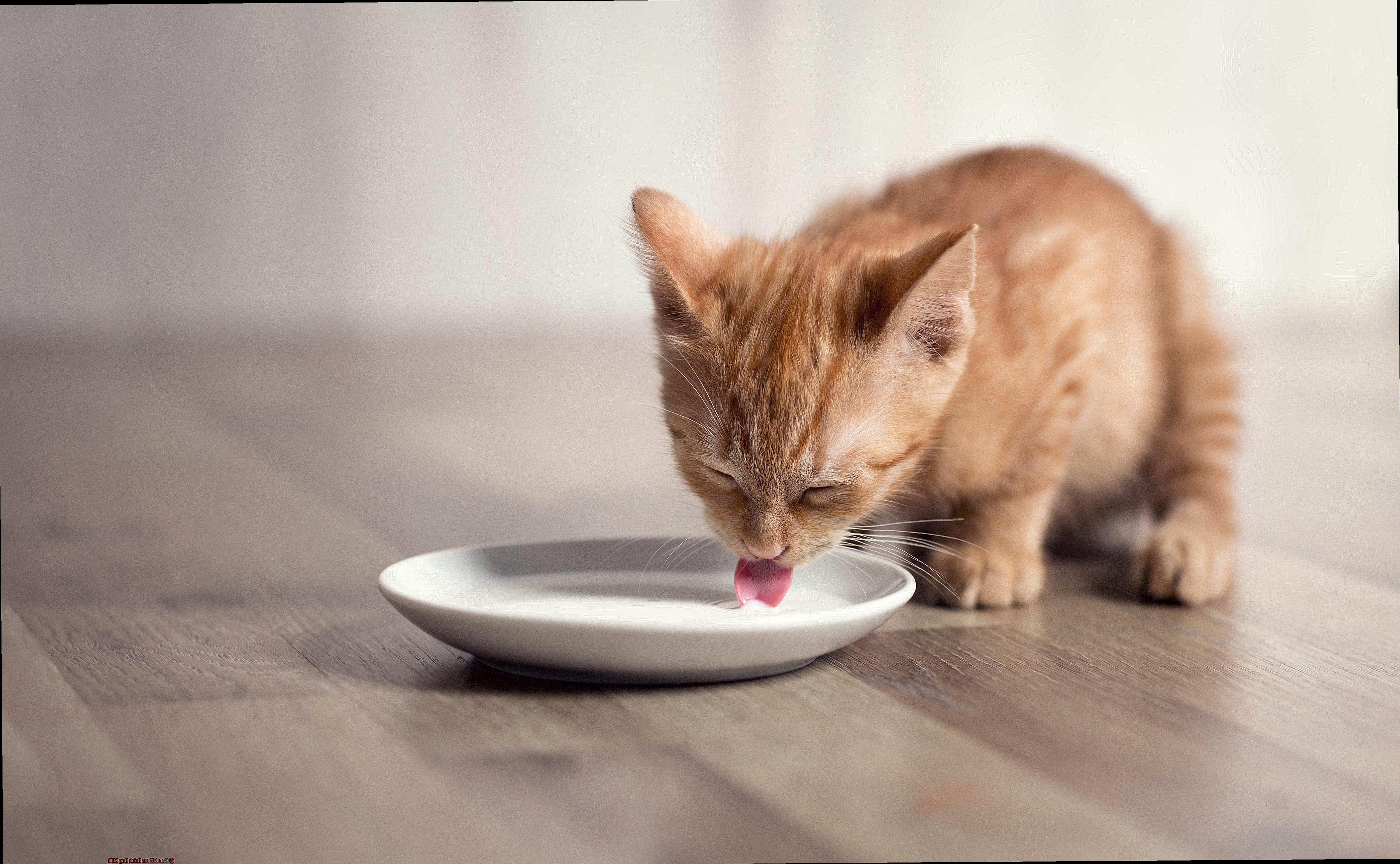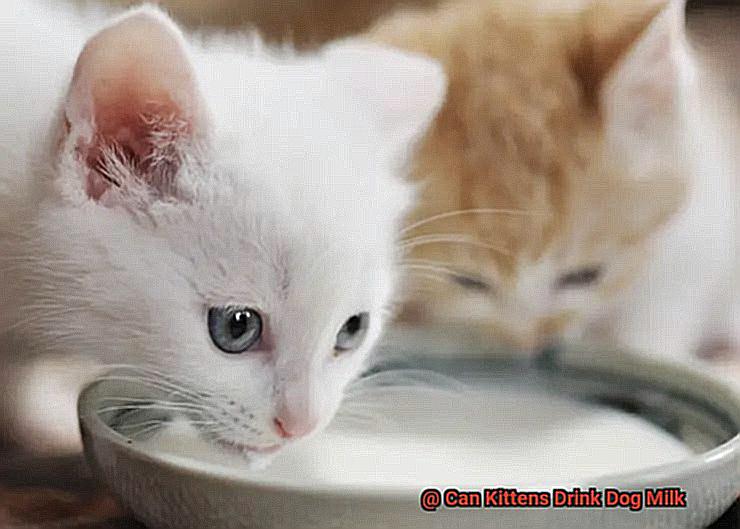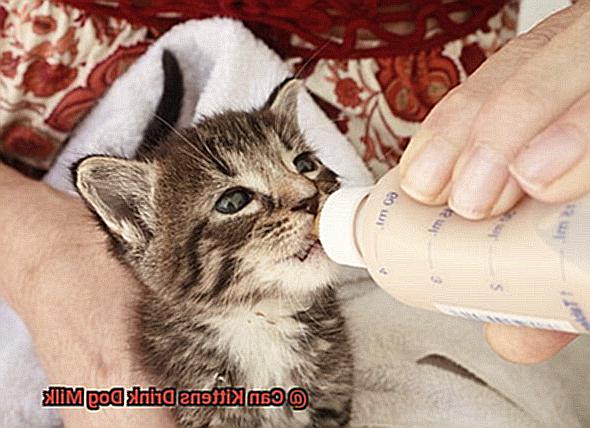Do kittens drink dog milk? It’s a question many pet owners ask.
The answer isn’t straightforward.
Cats and dogs are two very different species with different nutritional needs.
Dog milk is designed for puppies, not kittens, so giving it to a young cat can be risky.
But what about older cats? Can they drink dog milk? The short answer is no.
Dog milk doesn’t contain the vitamins cats need to stay healthy, and in some cases it may even make them sick.
So, if your kitten runs out of formula, don’t turn to dog milk as a substitute.
But there are other options for pet owners who want to give their cats more nutrients or hydration.
We’ll look at the benefits and drawbacks of feeding your cat dog milk as well as alternative methods that can help keep your feline friend happy and healthy.
Plus, we’ll discuss how to properly care for new kittens transitioning from mother’s milk to solid foods – so you know how to provide the best diet possible.
The Biological Differences Between Cats and Dogs
Cats and dogs may look similar, but their biological needs couldn’t be more different.
While both are beloved by pet owners, their dietary requirements vary significantly.
Cats are obligate carnivores, meaning they need a diet that is high in protein from animal sources.
Dogs, on the other hand, are omnivores and can digest both plant-based and animal-based foods.
Dogs require more carbohydrates than cats do, as well as additional vitamins and minerals.
Furthermore, cats need more taurine—an amino acid found in animal proteins—than dogs do.
It’s like an intricate nutritional orchestra.

When it comes to milk, it is not a natural food for either species.
So if you’re tempted to give your cat or dog a bowl of milk after a long day, think again. Instead of dairy products, make sure your furry friends have all the nutrients they need from their regular diets.
The external similarities between cats and dogs may be striking, but when it comes to nutrition they require very different diets to stay healthy and happy for years to come.
What is Dog Milk and How Does it Differ from Cat Milk?
During the nursing period, female dogs produce a special type of milk known as dog milk.
It has higher fat content than cat’s milk, making it more suitable for kittens.
But don’t be fooled – dog milk contains different proteins than cat’s milk, which can help with the growth and development of kittens.
Dog milk is akin to a nutritious meal for kittens, yet it does not contain the same antibodies as cat’s milk.
These antibodies are essential for kittens’ growth and health; therefore, dog milk should not be used as a substitute for cat’s milk.
Nutritional Values of Dog Milk vs Cat Milk
When it comes to providing nutrition for kittens, dog milk and cat milk are like two sides of a coin.
Dog milk is higher in fat, protein, carbohydrates, minerals and vitamins than cat milk, making it the more nutritious option.
It also contains higher levels of calcium, phosphorus, magnesium, sodium and potassium than cat milk.
This means that dog milk can provide more nutrition for a kitten’s growth and development than cat milk.
However, feeding a kitten only dog or cat milk is not recommended as neither type of milk provides all the necessary nutrients for their growth and development.
Both milks contain bacteria that can cause digestive issues if not properly pasteurized or sterilized before being consumed.

Additionally, kittens may be allergic to certain proteins found in either type of milk which could lead to digestive upset or other health issues.

Finally, both types of milks contain lactose which can cause diarrhea in kittens if they are not able to digest it properly.
It is important to consider the potential risks associated with feeding a kitten dog or cat milk when deciding which one is best for your pet’s nutritional needs.
Potential Health Risks of Feeding Kittens Dog Milk
Navigating the potential health risks of feeding kittens dog milk is like walking through a dark forest at night – one wrong move could have dire consequences.
Although it may seem that it is a quick and simple fix, there are several potential health issues that can occur if not done correctly.
Digestive problems, such as vomiting and diarrhea, can occur if the kitten is not able to digest the milk properly.
Kittens need specific nutrients from their mother’s milk that are not found in dog milk, so malnutrition can occur if they are exclusively fed dog milk.
Skin reactions or other allergic reactions can also arise as a result of allergies in dog milk.
To ensure the kitten is getting all the nutrients it needs, it is important to remember that feeding kittens dog milk should only be done under the supervision of a veterinarian and with appropriate supplements.
Despite the fact that it may seem like an easy solution, if not done correctly, it could result in disastrous consequences for your furry friend.
Can a Dog Raise a Kitten?
Surprisingly, the answer is yes. In some cases, a canine companion may be able to provide the necessary care for an orphaned or abandoned kitten.
The bond between these two animals can be surprisingly strong.
Just like a mother cat, the dog will help keep the kitten warm and safe.
It will also provide food and protection from danger.
The pup might even groom and play with its feline friend.
Of course, it’s important to take certain precautions when raising a kitten.
For example, never allow the dog to nurse an orphaned kitten as this could lead to health problems for both animals.
Additionally, make sure that both cats receive regular veterinary care and that the dog receives adequate nutrition and exercise so that it can properly care for the kitten.

Can Humans Drink Dog Breast Milk?
Dog breast milk may be a tempting beverage for humans, but it’s not recommended to drink.
In fact, it can be downright dangerous. This is because dog breast milk contains high levels of bacteria and other microorganisms that can cause health problems.
Additionally, it contains hormones and proteins that are not suitable for human consumption.
If consumed, it could lead to digestive issues, allergies, and even food poisoning.
Alternatives to Feeding Kittens Dog Milk
Searching for the right food to feed your kitten can be a challenge.
While dog milk may seem like an easy solution, it’s not the best option for kittens.
So, what are the alternatives?
Kitten formula is specifically designed to provide kittens with all of the essential nutrients they need to thrive.
It’s like a superfood smoothie for kittens.
Cow’s milk is also an option, but should be diluted to prevent digestive issues in kittens.
Goat’s milk is another popular choice as its nutrient content is similar to that of mother’s milk and it’s easier for little bellies to digest than cow’s milk.
Soy milk can also be used as an alternative, but only if your kitten is four weeks old or older.
It’s important to remember that these alternatives should only be used if your kitten has been weaned off their mother’s milk or if there are no other options available.
Conclusion
To sum up, it’s clear that dog milk is not a suitable substitute for cat milk.
While dog milk may contain more nutrients than cow’s milk, it lacks the antibodies and proteins cats require to stay healthy.
Feeding kittens dog milk can lead to digestive issues, allergies, and even food poisoning.
The best way to ensure your furry friend gets all the nutrients they need is to provide kitten formula or kitten milk – like a kittens’ superfood smoothie. This specially formulated meal contains all the essential nutrients required for growth and development.
If your kitten has weaned off their mother’s milk or there are no other options available, you may also try diluting cow’s or goat’s milk as an alternative.
Ultimately, being informed and vigilant about what you feed kittens is key.
Dog milk may seem like an easy fix but its risks far outweigh its benefits.

